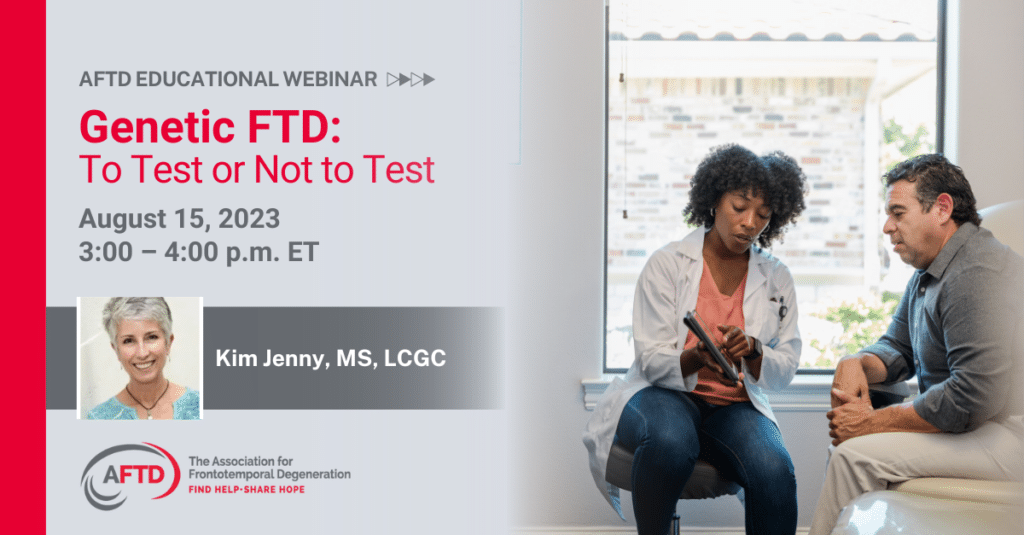What's New
Front Page
Help & Support: Sleep Issues in FTD
Changes to sleep routines are a common challenge for the person living with FTD and their care…
NIH Identifies Genetic Risk Factors for FTD, Offers Data to Researchers Online
Scientists at the National Institutes of Health (NIH) leveraged cutting-edge technology to identify genetic risk factors for…
Advancing Hope: AFTD Staff Present at the 2023 Alzheimer’s Association International Conference
Senior Director of Scientific Initiatives Penny Dacks, PhD, and Director of Research and Grants Debra Niehoff, PhD,…
AFTD Ambassador Emphasizes Need for Better Dementia Care in Podcast
Melissa Fisher, AFTD Ambassador and a senior strategic marketing consultant at Kaiser Permanente Northwest, shared the realities…
AFTD and Passage Bio Discuss Therapeutics Designed for FTD-GRN
AFTD recently spoke with Passage Bio Chief Executive Officer William Chou, M.D., about his colleagues’ work to…
Guest Feature: My Ohana – Reflecting on The Close Bonds We Build on the FTD Journey
FTD symptoms and the stigma attached can make navigating the disease an isolating experience for people diagnosed,…
Schizophrenia Drug Reduces Tau Protein Aggregation in Cell and Mouse Models, Study Finds
Amisulpride, an antipsychotic drug, is capable of reducing aggregation of the tau protein in cell and mouse…
Advancing Hope: AFTD’s Director of Research Engagement Attends Cure VCP Conference
Shana Dodge, PhD, AFTD’s Director of Research Engagement, spoke at the 2023 Cure VCP Connections Conference, held…
Guest Feature: That Picture, That Movie, That Song – Connecting with My Dad Beyond FTD
FTD can distort one’s personality and behavior in unpredictable and upsetting ways, and it can be hard…
AFTD Webinar: Genetic FTD — To Test or Not to Test
The decision to learn one’s own genetic risk for developing FTD is highly personal. An individual’s test…










